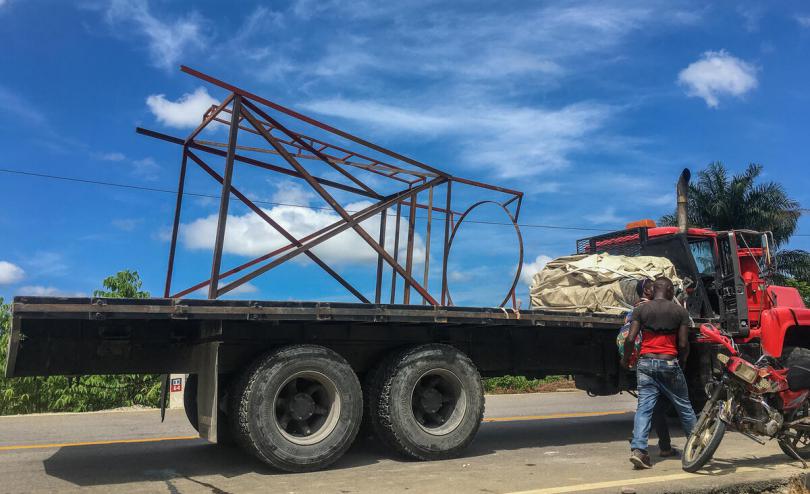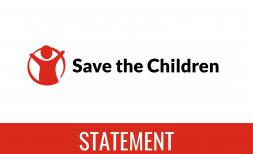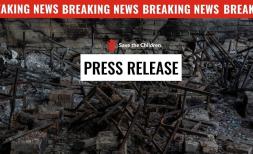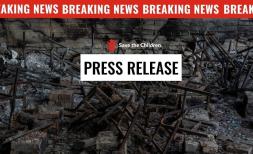Water shortages raise concerns of cholera re-emerging in Haiti three months after earthquake

Save the Children's Emergency Health Unit transport and set up a water tank in the Grand’Anse region of Haiti.
Water shortages in Haiti are increasing the risk to children’s health three months after a massive earthquake, with concerns that cholera could re-emerge in the Caribbean nation that was on track to eliminate the deadly disease, Save the Children warned.
Since the August 14 earthquake that killed about 2,248 people, a severe fuel shortage, growing insecurity, and increasing water shortages have hampered efforts to restore basic services to thousands in need across the country.
This has led to concerns of a repeat of the events after the devastating 2010 earthquake in Haiti killed 200,000 people. Nine months after that disaster came a cholera outbreak which lasted years, impacted 820,000 people and led to almost 10,000 deaths. Cholera is spread through contaminated water and the risk of contraction escalates when people lack safe water sources for drinking and hygiene.
Save the Children said the decline in access to clean water could endanger hard-won progress against cholera in Haiti which was on track to reach three years without a reported case in January 2022
Communities in urban settings like Port-au-Prince have lost water access because pumps are not functioning due to fuel shortages, while infrastructure in rural areas in Sud and Grand’Anse departments was still suffering from the impacts of the 2010 earthquake.
Even before the August quake, many rural communities in those areas relied on rainwater and mountain sources, while water treatment units and water trucking programmes, often conducted by non-government organisations, provided clean water to others but fuel shortages have drastically reduced or stopped these services.
Perpetue Vendredi, Deputy Country Director for Save the Children Haiti, said the threat to children’s health due to these water shortages cannot be understated:
“In the three months since the earthquake struck, the challenges facing children have only grown. Now many children don’t even have reliable access to one of the most basic human needs: water.
“Infectious diseases thrive when clean water is scarce. We are already facing a COVID-19 pandemic. We cannot add waterborne disease outbreaks to that.”
More than 4.3 million people in Haiti – or one in every 3 of the population – already do not have enough food daily and cholera is more likely to infect and kill, children suffering from malnutrition.
Across the country health facilities are damaged, under-resourced, and understaffed due to the earthquake, fuel shortages and instability.
Save the Children is developing risk communication materials for residents on appropriate water, sanitation and hygiene (WASH) behaviours, essential to avoid outbreaks of vector-borne diseases such as COVID-19 and cholera.
Since August, Save the Children has distributed more than 500 baby and hygiene kits. The organisation is supporting the rehabilitation and upgrading of water and sanitation facilities in 19 educational sites in the Sud and Grand’Anse departments and has helped rehabilitate water and sanitation facilities in two operational health centres.
“Humanitarians must be granted access to the children and families who are most in need of services, and the global community must invest in Haiti’s full recovery,” said Ms Vendredi.
For further enquiries please contact:
- Claire Garmirian cgarmirian@savethechildren.org or Belinda.goldsmith@savethechildren.org
- We have spokespeople available.
- Our media out of hours (BST) contact is media@savethechildren.org.uk / +44(0)7831 650409




